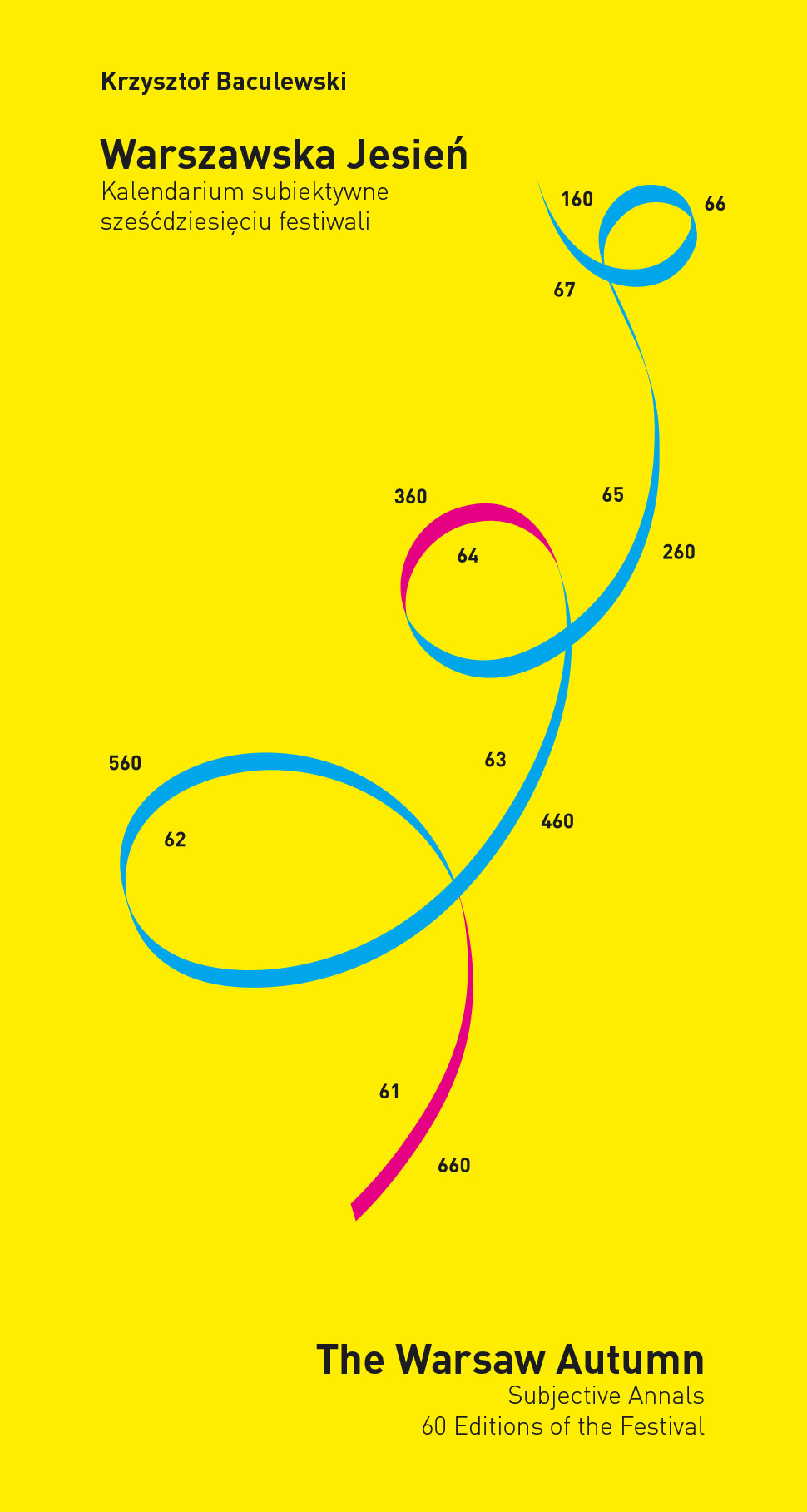
Krzysztof Baculewski "Subjective Annals 60 Editions of the Festival"
The poster, programme book and 'Warsaw Autumn Sound Chronicle' record sleeves, which from the 5th Festival had used the same graphic design, in 1970 received exceptionally attractive artwork (by Hubert Hilscher). Among guests from abroad there were: the Chamber Orchestra of Amsterdam Conservatory, the Grand Symphony Orchestra of Moscow Radio and Television conducted by Gennady Rozhdestvensky, the Symphony Orchestra of the Czech Radio from Prague, Kölner Rundfunk-SinfonieOrchester under Michael Gielen, Gruppe MHz from Wuppertal, as well as a large representation of Swedes from Stockholm: Royal Stockholm Philharmonic Wind Quintet, Kulturkvartetten and the Bel Canto choir. Noteworthy works included: Piece for Orchestra No. 1 by Zygmunt Krauze, Tre studi secondo Giotto by Romuald Twardowski, Aela by Włodzimierz Kotoński, Mixtur by Karlheinz Stockhausen, Forte the piano by Kazimierz Serocki, Cello Concerto by György Ligeti, and Four novelettes by Tadeusz Baird.
This 'Warsaw Autumn' is remembered by many for one of the most famous Festival scandals, which broke in the concert hall of the State Higher School of Music toward the end of a night concert by 'Music Workshop'. The audience was invited to participate in the performance of the aleatory piece The Great Digest (Paragraph 7) by Cornelius Cardew. The performance turned into a unique happening, which got out of the organisers' control, partly because a group of conservatory students took the performance guidelines extremely seriously, unduly prolonging the whole performance and causing the audience to become increasingly impatient: people were laughing, talking, walking around, and a large group invaded the stage in search of entertainment. To cap it all, one of the students (nomen est odiosum) began to play Chopin on the concert piano. The School's authorities later claimed that they interrupted the concert (by emitting sounds of high frequency and intensity from a generator into the concert hall), because of the risk of the excited youth setting re to the piles of sticks arranged on the stage, ready for the performance of the next composition, Sticks by Christian Wolff. However - unless my memory fails me - in spite of this work being listed as performed in the Festival index, the concert ended before Wolff's piece could be presented, and the only sticks that evening were those lying on the floor. Paradoxically, it was the censor who unwittingly contributed to this fracas by approving the publication of performance guidelines (with a Chinese text ascribed to Confucius in Ezra Pound's translation) for the singing, walking and/or humming audience... The Repertoire Committee was chaired again by Andrzej Dobrowolski (until 1972).